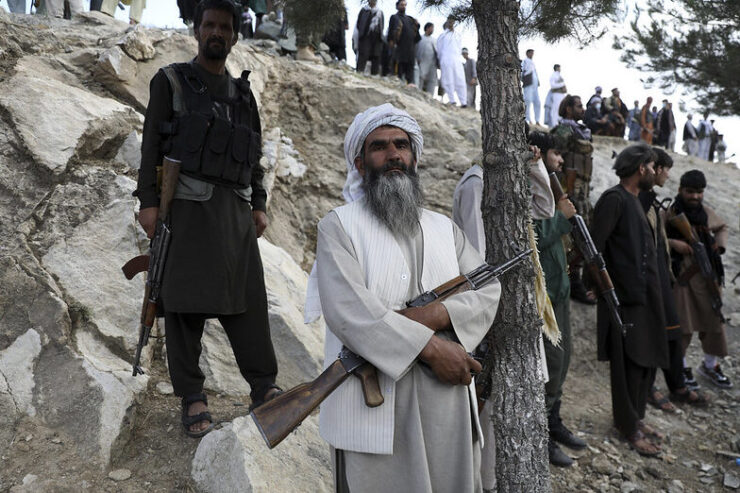On Aug. 31, the Taliban regime celebrated the first anniversary of the withdrawal from Afghanistan of the U.S.-led international coalition. The withdrawal came at the end of a 20-year war—the longest ever waged by the United States—which proved ultimately to be costly in blood and treasure, and futile in fruits. The war resulted in the return to power of hard-core Islamic fundamentalists, which effect has only aggravated the humanitarian crisis already gripping the country.
It is no exaggeration to say that the situation of the Afghan people is tragic. The economy is in a state of collapse, partly due to the fact that, without any legal justification, the United States has frozen approximately $7 billion belonging to the Afghan central bank; poverty is rampant, and 90 percent of the country’s 40 million people are near starvation. The plight of women and girls in Afghanistan is beyond bleak. The Taliban upholds as one of its key principles the return to what they regard as genuine Islam, which includes institutional, divinely ordained discrimination against women.
In terms of wider Central Asian geopolitics, it is fair to say that the chief winner from last year’s end-game departure is Pakistan. Throughout those two decades of war in Afghanistan, Pakistan played a double role. On the one hand, it was an ostensible American partner and ally. On the other, its powerful Inter-Services Intelligence (ISI) was a discrete yet consistent abettor of the Taliban. In Pakistan’s North-West Frontier Province, in the capital city of Peshawar, the Taliban had always enjoyed a safe haven whenever they found themselves under serious pressure from the Americans and their allies in the Pashtun heartland of the country.
As a result of this arrangement, today’s Pakistan effectively has the Taliban regime as its satellite, extending its strategic depth in an important geographic region. From China’s Xinjiang territory to the Pakistani port of Gwadar, on the Indian Ocean, a major corridor is being developed, which will provide China with a road and a pipeline to reach open seas, bypassing the choke point of the Straits of Malacca in Southeast Asia. By these developments, Pakistan has shown some mastery in the conduct of hybrid warfare. The Pakistanis have used a third party, the Taliban, to advance strategic objectives without firing a single shot. In the longer term, by creating the axis Kabul-Islamabad, Pakistan has weakened India’s position in the subcontinent and opened the door to the Chinese to replace the Americans as the main investors in Afghanistan, which is a major depository of rare earth elements.
On the whole, Afghanistan was a major debacle for the United States, but a global power of America’s magnitude could afford it. The withdrawal from Kabul was humiliating, and it was carried out with a great deal of ineptitude. But in spite of all that failure, the global might of the United States has not been undermined to any significant degree. And that is the difference between Afghanistan and the Russian intervention in Ukraine. Afghanistan had always been, for America, an optional war. By contrast, the Russians in Ukraine are fighting for their status as a major power and for the defense of their vulnerable southwestern flank, which extends from Rostov-on-Don to Volgograd, approximately 450 km (280 miles).
Throughout Russia’s history, the main geopolitical problem has been the lack of natural barriers along its western borders. From the North Sea all the way to Moscow and beyond, to the Urals, there are no ranges like the Alps or the Pyrenees, or rivers like the Danube or the Rhine. The U.S., on the other hand, could end the mission in Afghanistan without altering the global balance.
Meanwhile, the long-suffering 40 million people of Afghanistan see no light at the end of a long and very dark tunnel.
Image: Afghan militiamen join Afghan defense and security forces during a gathering in Kabul, Afghanistan, Wednesday, June 23, 2021. (From: 李 季霖, CC BY-SA 2.0, via Flickr)

Leave a Reply